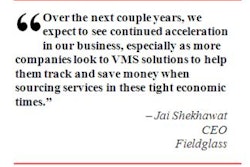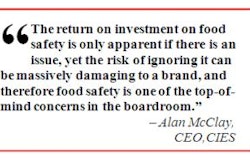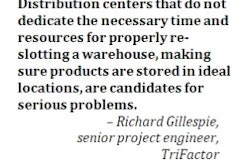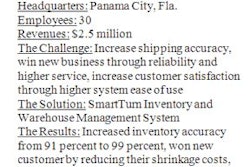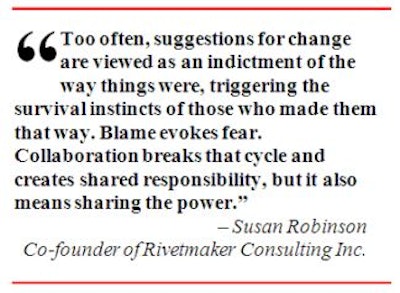
When I was the second car in a four car accident a few months ago, I made three phone calls within the first 15 minutes. I called 911, my husband and my car insurance company, in that order. Ironically, I'd just read the 1 to 1 Weekly article on how Nationwide insurance had improved customer engagement with just three words. So even though I wasn't surprised by the Geico operator's first question, I still heard myself exhale a sigh of relief. He asked me, "Are you okay?"
The 1 to 1 Weekly article, based on a presentation by Nationwide's Doug Stafford at the Frost and Sullivan Customer Contact Executive MindXchange in April 2008, explained how Nationwide raised customer satisfaction without raising costs, simply by training customer service employees to make an emotional connection with customers who call to report a claim or occurrence. With these three words, "Are you okay?" Nationwide sought to demonstrate that they live up to their slogan, "Nationwide is on your side." They certainly tapped a need.
As it turns out my relief at the scene of the accident turned to frustration as soon as my Geico operator read the prepared legal script on subrogation, but I have to admit I was more forgiving because he'd asked so sincerely about my well-being. He'd built up a little trust reserve, on which I drew in the days of unsuccessful telephone tag and voice messages to my adjuster, and which was quickly replenished when I received a phone message keeping me updated about Geico's efforts to recover my deductible from the driver who was at fault for the accident.
How does this apply to employee engagement? There are three important lessons:
Think of employees as internal customers. Their input is critical to your success because frontline employees know firsthand what your customers want and how operations can be improved. Self-interest compels them to ask, "Is there a better way to do this?" Hopefully, self-preservation doesn't keep them from telling you what that better way is.
Give People a Voice
Jack Welch talks about "collaborative innovation." Innovation built on user input is a revolution in progress, and employees have the other user-generated content. To get that content, you have to make it safe for people to speak. Too often, suggestions for change are viewed as an indictment of the way things were, triggering the survival instincts of those who made them that way. Blame evokes fear. Collaboration breaks that cycle and creates shared responsibility, but it also means sharing the power. Now there's a genie you can't get back in the bottle.
So is it worth the risk? Well, what do people do when they feel powerless? You might ask any one of the hundreds of Verizon Florida employees who picketed the company for two days last April, to advocate for improved customer service. When I asked what company leaders were doing in response to the protest, one Verizon employee told me, "Nothing! If they would give me their ear, I would educate them."
If you can't be heard, you get even. The financial crisis doesn't change that. When employees feel powerless, some will actively undermine corporate objectives. Some will content themselves with the thought that the company's failure to improve — lost opportunity, lost revenue and unnecessary expenses — is punishment enough. Others will leave (maybe bringing their expertise — and the knowledge of your weaknesses — to your competitors).
Meet an Emotional Need
What do employees want? With the exception of those who feel their survival is at stake, a raise in pay is not usually at the top of their list. Psychologist Martin Seligman observed, "Our economy is rapidly changing from a money economy to a satisfaction economy."
The Verizon labor union that organized those two days of picketing wasn't asking for employees to get paid more money. They wanted to be included in the conversations that determine policy. They wanted their input to be valued. And what do the employees want? The freedom to make frontline decisions that meet customer needs.
Inclusion. Freedom. Choice. Esteem. These and other emotional needs drive decisions and behaviors. We'd call it the engagement economy.
Manage by Relief
I doubt it was altruism that drove those Verizon employees to the picket lines. The protest was organized by the union that represents "customer-facing" employees, the field service technicians and customer service reps who are stuck trying to enforce company policies that are mismatched to customer needs. They are the ones who spend their days as the target of frustrated, angry customers. Their top priority is avoiding these toxic interactions, made more challenging by the fact that the employees agree with the customers.
It's interesting to note that the protests focused on Verizon's policies that mandate time efficiencies over resolution of customer problems. Compare that to Doug Stafford's comment that Nationwide "realized that the personal connection with customers is much more important than efficiency metrics like average call handle time." Notice he didn't say that call handle time isn't important. He just said engagement is more important.
I promised you four words, and they aren't "we feel your pain." You know you've struck the cord to give employees relief when you see the tension relax and hear them exhale again. It's not enough to listen, you have to follow through and implement changes.
So what are those four magic words to boost employee engagement?
"We took your advice".
To be able to say these words, you have to have done the legwork — listening to employees' needs and applying at least some of their suggestions.
No one expects you to implement all employee suggestions all the time. You still have to steer. But if you give your employees a voice — assure that communication is mutual and collaborative, meet emotional needs and manage by relief, following through on employee suggestions regularly — you'll build up a trust reserve that will help keep employees connected to your company through the tougher times.
The 1 to 1 Weekly article, based on a presentation by Nationwide's Doug Stafford at the Frost and Sullivan Customer Contact Executive MindXchange in April 2008, explained how Nationwide raised customer satisfaction without raising costs, simply by training customer service employees to make an emotional connection with customers who call to report a claim or occurrence. With these three words, "Are you okay?" Nationwide sought to demonstrate that they live up to their slogan, "Nationwide is on your side." They certainly tapped a need.
As it turns out my relief at the scene of the accident turned to frustration as soon as my Geico operator read the prepared legal script on subrogation, but I have to admit I was more forgiving because he'd asked so sincerely about my well-being. He'd built up a little trust reserve, on which I drew in the days of unsuccessful telephone tag and voice messages to my adjuster, and which was quickly replenished when I received a phone message keeping me updated about Geico's efforts to recover my deductible from the driver who was at fault for the accident.
How does this apply to employee engagement? There are three important lessons:
- Give people a voice.
- Meet an emotional need.
- Manage by relief.
Think of employees as internal customers. Their input is critical to your success because frontline employees know firsthand what your customers want and how operations can be improved. Self-interest compels them to ask, "Is there a better way to do this?" Hopefully, self-preservation doesn't keep them from telling you what that better way is.
Give People a Voice
Jack Welch talks about "collaborative innovation." Innovation built on user input is a revolution in progress, and employees have the other user-generated content. To get that content, you have to make it safe for people to speak. Too often, suggestions for change are viewed as an indictment of the way things were, triggering the survival instincts of those who made them that way. Blame evokes fear. Collaboration breaks that cycle and creates shared responsibility, but it also means sharing the power. Now there's a genie you can't get back in the bottle.
So is it worth the risk? Well, what do people do when they feel powerless? You might ask any one of the hundreds of Verizon Florida employees who picketed the company for two days last April, to advocate for improved customer service. When I asked what company leaders were doing in response to the protest, one Verizon employee told me, "Nothing! If they would give me their ear, I would educate them."
If you can't be heard, you get even. The financial crisis doesn't change that. When employees feel powerless, some will actively undermine corporate objectives. Some will content themselves with the thought that the company's failure to improve — lost opportunity, lost revenue and unnecessary expenses — is punishment enough. Others will leave (maybe bringing their expertise — and the knowledge of your weaknesses — to your competitors).
Meet an Emotional Need
What do employees want? With the exception of those who feel their survival is at stake, a raise in pay is not usually at the top of their list. Psychologist Martin Seligman observed, "Our economy is rapidly changing from a money economy to a satisfaction economy."
The Verizon labor union that organized those two days of picketing wasn't asking for employees to get paid more money. They wanted to be included in the conversations that determine policy. They wanted their input to be valued. And what do the employees want? The freedom to make frontline decisions that meet customer needs.
Inclusion. Freedom. Choice. Esteem. These and other emotional needs drive decisions and behaviors. We'd call it the engagement economy.
Manage by Relief
I doubt it was altruism that drove those Verizon employees to the picket lines. The protest was organized by the union that represents "customer-facing" employees, the field service technicians and customer service reps who are stuck trying to enforce company policies that are mismatched to customer needs. They are the ones who spend their days as the target of frustrated, angry customers. Their top priority is avoiding these toxic interactions, made more challenging by the fact that the employees agree with the customers.
It's interesting to note that the protests focused on Verizon's policies that mandate time efficiencies over resolution of customer problems. Compare that to Doug Stafford's comment that Nationwide "realized that the personal connection with customers is much more important than efficiency metrics like average call handle time." Notice he didn't say that call handle time isn't important. He just said engagement is more important.
I promised you four words, and they aren't "we feel your pain." You know you've struck the cord to give employees relief when you see the tension relax and hear them exhale again. It's not enough to listen, you have to follow through and implement changes.
So what are those four magic words to boost employee engagement?
"We took your advice".
To be able to say these words, you have to have done the legwork — listening to employees' needs and applying at least some of their suggestions.
No one expects you to implement all employee suggestions all the time. You still have to steer. But if you give your employees a voice — assure that communication is mutual and collaborative, meet emotional needs and manage by relief, following through on employee suggestions regularly — you'll build up a trust reserve that will help keep employees connected to your company through the tougher times.




